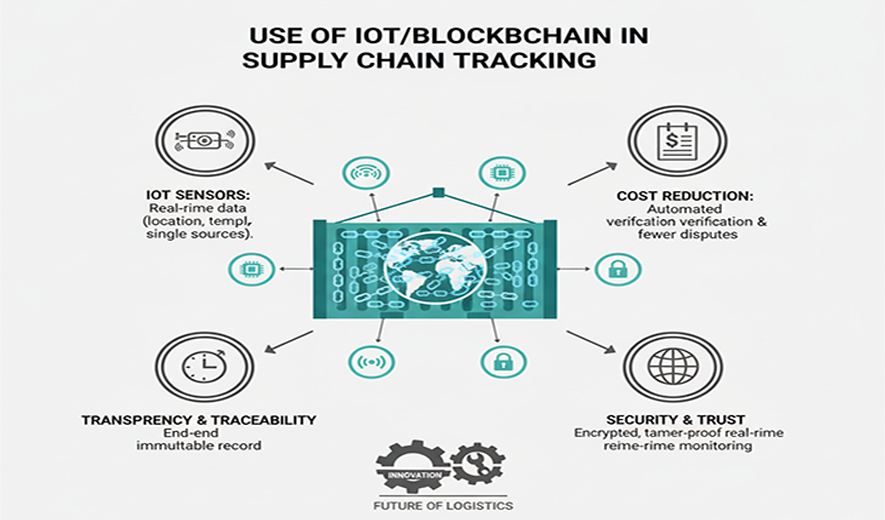
Use of IoT/Blockchain in Supply Chain Tracking
Integrating the Internet of Things (IoT) and blockchain is a powerful combination for supply chain tracking, as it moves beyond simple location monitoring. IoT provides real-time data collection, while blockchain creates a tamper-proof and shared record of that data, establishing trust and enabling end-to-end visibility for all parties.
How IoT enables real-time tracking
IoT devices are physical objects, such as sensors and RFID tags, that are connected to the internet and exchange data. In the supply chain, these devices capture and transmit critical data about goods as they move.
- Real-time location: GPS and RFID sensors on vehicles, pallets, and containers provide continuous location tracking, alerting managers if a shipment deviates from its planned route.
- Condition monitoring: Sensors can track environmental factors like temperature, humidity, and vibration, which is crucial for sensitive or perishable goods like food and pharmaceuticals.
- Inventory management: IoT-enabled warehouses use sensors on shelves and bins to provide automated, real-time inventory updates, reducing the manual effort and errors associated with stock counts.
- Predictive maintenance: Sensors on manufacturing equipment and vehicles monitor performance and trigger proactive maintenance alerts, preventing costly breakdowns and delays.
How blockchain adds security and transparency
As a decentralized and immutable digital ledger, blockchain provides a secure and transparent way to store the data collected by IoT devices. It is particularly effective for multi-party interactions in a supply chain, where trust might be lacking.
- Immutable recordkeeping: Once IoT data, such as a shipment's temperature or delivery milestone, is recorded on the blockchain, it cannot be altered. This creates a secure, auditable trail that prevents fraud and manipulation.
- Enhanced traceability: The combined data from IoT sensors, verified and stored on the blockchain, creates a complete and trustworthy history of a product's journey from its origin to the customer. This is used for ethical sourcing, authenticating luxury goods, and ensuring food safety.
- Smart contracts: These self-executing contracts on the blockchain automatically trigger actions when pre-defined conditions are met. For example, payment can be automatically released to a supplier once an IoT sensor confirms that goods have been delivered in good condition.
- Increased trust: By providing a shared, single version of the truth, blockchain fosters trust among all supply chain partners, from suppliers to retailers, without the need for a central authority.
